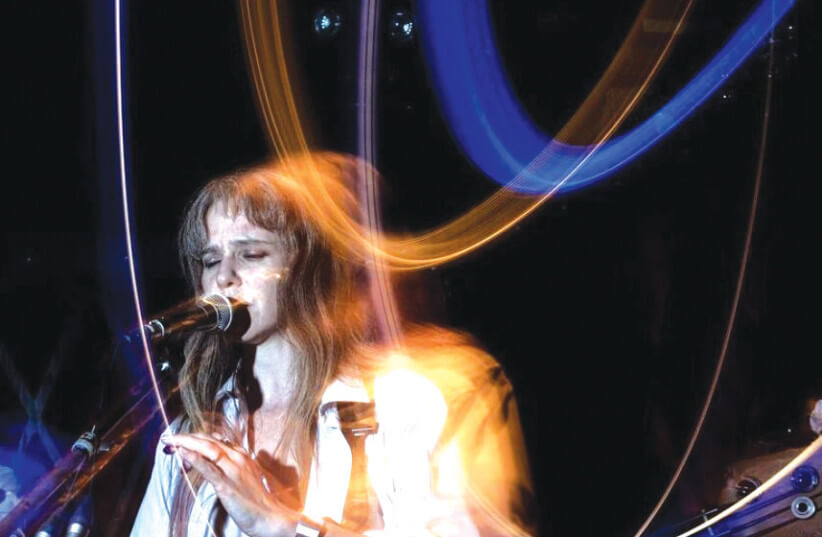Original Article On The Jerusalem Post
What do you do post retirement when your job WAS playing in the US Open?
When tennis lovers retire from their jobs, they often choose to play more tennis to help overcome the inevitable boredom and isolation which often comes from no longer being surrounded by fellow workers.
They may even travel to some bucket-list tournaments such as the Australian Open, Wimbledon, the French Open or the US Open. But what do you do post retirement when your job WAS playing in the US Open?
For Israeli professional tennis players who spent many hot August days and late nights playing under the lights in Queens in front of large, raucous, Israeli flag waving crowds, the famed tournament still holds an important place – and they think about the tournament each August.
Shlomo Glickstein, now 65, was Israel’s most accomplished tennis player in the 1980s. He reached a career high ranking of 22 in singles (1982) and was No. 28 in doubles (1986). While he beat some of the world’s greats, including No. 1 Ivan Lendl and such top 10 players as Harold Solomon and Eliot Teltscher, he will never forget a US Open match in 1985 that he considers to be one of the most important matches of his life.
“One match could have changed my whole career,” Glickstein reported. “I played McEnroe in the first round in 1985. I wasn’t meant to come. My wife was due with our first baby. I was at a German league match and found out I was playing in the US Open!” He noted that he came to the US on a Saturday, and that it rained Sunday and Monday. “I played Tuesday with no practice. It was an unbelievable match. I lost in five to McEnroe – I was up 2 sets to 1. It was my most exciting and most important match ever. It could have gotten me back in the top 100.” Glickstein still recalls the match vividly 38 years later.

Andy Ram at US Open practice 2009 (credit: Wikimedia Commons)
In an August 28, 1985 New York Times article entitled, “McEnroe Barely Survives First-Round Match,” writer Peter Alfano writes of the four-hour match between the defending US Open champion and No. 175 ranked Glickstein: “With crowd behind him chanting ‘Shlomo, Shlomo, Shlomo,’ Glickstein nearly pulled off what would have been one of the most spectacular upsets in Open history. McEnroe would go on to lose in the finals to Ivan Lendl.”
Glickstein retired from tennis in 1988 and served as CEO of the Israel Tennis Association.
“For the first few years after retiring 35 years ago, I used to be into the US Open. It is still in my blood and nice to remember playing on the biggest stage. I went a few times and met a few friends.”
Glickstein reports that he worked at a New Jersey Y camp in the US for several years and he worked for the ITA (Israel Tennis Association) for 12 years. He served as CEO from 2007-2012 and was professional director during his last year there. He is now working privately in the tennis world and is coaching a few players.
Shahar Peer, 36, who played in the US Open for over a decade as both a junior and a professional, actually went to the US Open last year as a spectator, with her husband.
“I am pretty casual about it when the US Open comes,” said Peer, who currently lives with her husband, who is completing a medical fellowship, and two young children. “I don’t miss it. I had enough of tennis, I guess – the pressure, the commitment, everything around it! And I really enjoy my life now. All is good.”
Peer reached the US Open Juniors semifinals in 2004, and played her first US Open womens’ qualifiers that same year, where she advanced to the second round. She played in the US Open every year from 2005-2015, reaching the quarterfinals in 2007. Peer reached her best singles ranking of No. 11, the highest of any Israeli tennis player in history, in January 2011. She achieve a doubles ranking of No. 14 in 2008.
In contrast to Peer, fellow Israeli women’s player, Julia Glushko acknowledged: “I do miss it – a lot! I don’t feel sad at all – I’m very thankful for everything tennis gave me and for the opportunity to play the best game in the world.”
Glushko participated in every US Open from 2011 through 2019, with the exception of 2017. She played in the qualifiers for four years and played in the main draw four times. Glushko’s biggest success at the US Open was in 2014 when she reached the third round before losing to Daniela Hantuchova in a third set tiebreaker.
Glushko, who retired in 2019, that she does “miss competition though and funny enough, when I think of tennis, I think of the US Open most of the time. It is my favorite Slam and I’ve always done well there.”
Glusko playfully noted that when she “saw that Caroline [Wozniacki] was coming back to playing, it made me think that maybe I can do the same? I don’t think I will, but it definitely gets you thinking.”
Glushko will attend the 2023 to support her good friend Australian Pricilla Hon, No. 207, who is in the qualifying tournament.
While Amir Hadad, 45, may not be as well known as other Israeli tennis players, a single act one summer at the US Open lives on in tennis history.
“I still remember that famous summer of 2002 like it was yesterday. It was the one-year anniversary of 9/11,” Hadad recounts, referring to the time he teamed up at the US Open to play doubles with Pakistani Muslim player Aisam al Quershi.
The doubles team made it to the third round, where it lost to Wayne Black and Kevin Ullyett, both of Zimbabwe. Hadad also advanced to the quarterfinals of the mixed doubles, which he played with Petra Mandula of Hungary. That year, Hadad also advanced to the final round of the singles qualifiers.
“I love New York and the US Open. It is always great to be there to play. The last experience was a very big one. There was a lot of buzz around us. There was some good tennis and it was a special one for sure!”
While Hadad last played professionally in 2010, he continues to be in touch with friends from his playing days, including Indian doubles player Rohan Bopanna, 43, who is still competing professionally. He is also “still interested and very much involved in tennis.”
The father of two teaches and coaches in Tel Aviv and “watches all of the US Open – singles, doubles, all!”
Dudi Sela, a long time US Open favorite of Jewish and Israeli fans due to his good nature and stunning late-night battles on court, gives himself mixed reviews for his performance here, but praises the fans.
“I miss a lot playing the Grand Slams – the pressure and the excitement before the match, and of course the feeling of winning a match. Although I didn’t have much success in New York, I have a lot of friends in the city. I love the atmosphere on the courts and the Jewish people coming out to support the Israelis. I am lucky I found something that I like doing and I am still in tennis coaching.”
Sela will be on hand at the Open coaching Israeli junior Mika Buchnik, the 43rd-ranked junior in the world. The 16-year-old phenom trains at the Dudi Sela Tennis Academy and will be competing in the girls’ qualifying tournament. “I really want to help the younger generation in Israel to fulfill their potential and be much better players,” Sela adds.
Israeli tennis star ‘doesn’t miss’ travel and work of competitions
Andy Ram, half of the beloved Israeli doubles team of Ram and [Yoni] Erlich, hopes to spend some time at this year’s US Open.
“The US Open is a nice place to come. It is the biggest event in the tennis world. I am always excited to come as a spectator and to remember I was part of it. But I don’t miss the travel, the efforts. Watching it on TV and enjoying it and thinking I was part of it in the past is a nice feeling,” Ram noted. The 43-year-old retired from professional tennis in 2014.
Ram has kept busy since retiring. He spends time with his three children – ages 12, 8 and 4 – he owns three (soon to be six!) ice cream stores throughout Israel, he is a public speaker, and he works with an Israeli businessman as a consultant.
Ram continues to be involved in tennis as well.
“I am still close with Yoni. We talk every day and I am helping him with ITEC [Israel Tennis and Education Centers]. While he is not competing professionally, the US Open is on his mind. Ram jokes: “I still have a chance to win it – it is the only Slam I did not win!”
Ram’s Grand Slam accomplishments are far too numerous to mention. He won the Australian Open in doubles in 2008 with Erlich, and he won the mixed doubles at both Wimbledon (2006, with Vera Zvonareva) and the French Open (2007 with Nathalie Dechy). Ram and partner, Max Mirinyi, lost in the 2009 semifinals in Flushing Meadows.
Jonathan “Yoni” Ehrlich, 45, the other half of the Ram/Ehrlich team, recently retired from a decade’s long and distinguished tennis career. In addition to winning the 2008 Australian Open with life-long friend, Ram, he won 22 tournaments and attained a world doubles ranking of No. 5 in 2008. He also represented Israel at the Davis Cup and in the Olympics on many occasions.
While Erlich is not planning to attend this year’s US Open, he may be in a good position to assure Israelis will soon make it to the big stage. He recently joined Israel Tennis & Education Centers as Director of the High-Performance Program. He acknowledges: “We had had no great Israeli players in the last 20-25 years,” and says, “My focus these past six months has been on how to rebuild – coaches, players and the program.”
“My biggest challenge is to help create the next generation of Israeli professional tennis players.”
When Erlich is successful, we look forward to see him cheering on Israeli juniors and pros – from the coaches’ box at the US Open.






